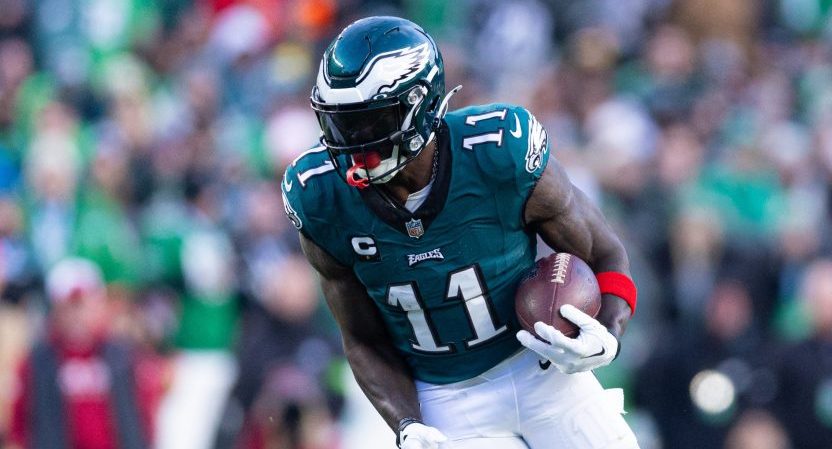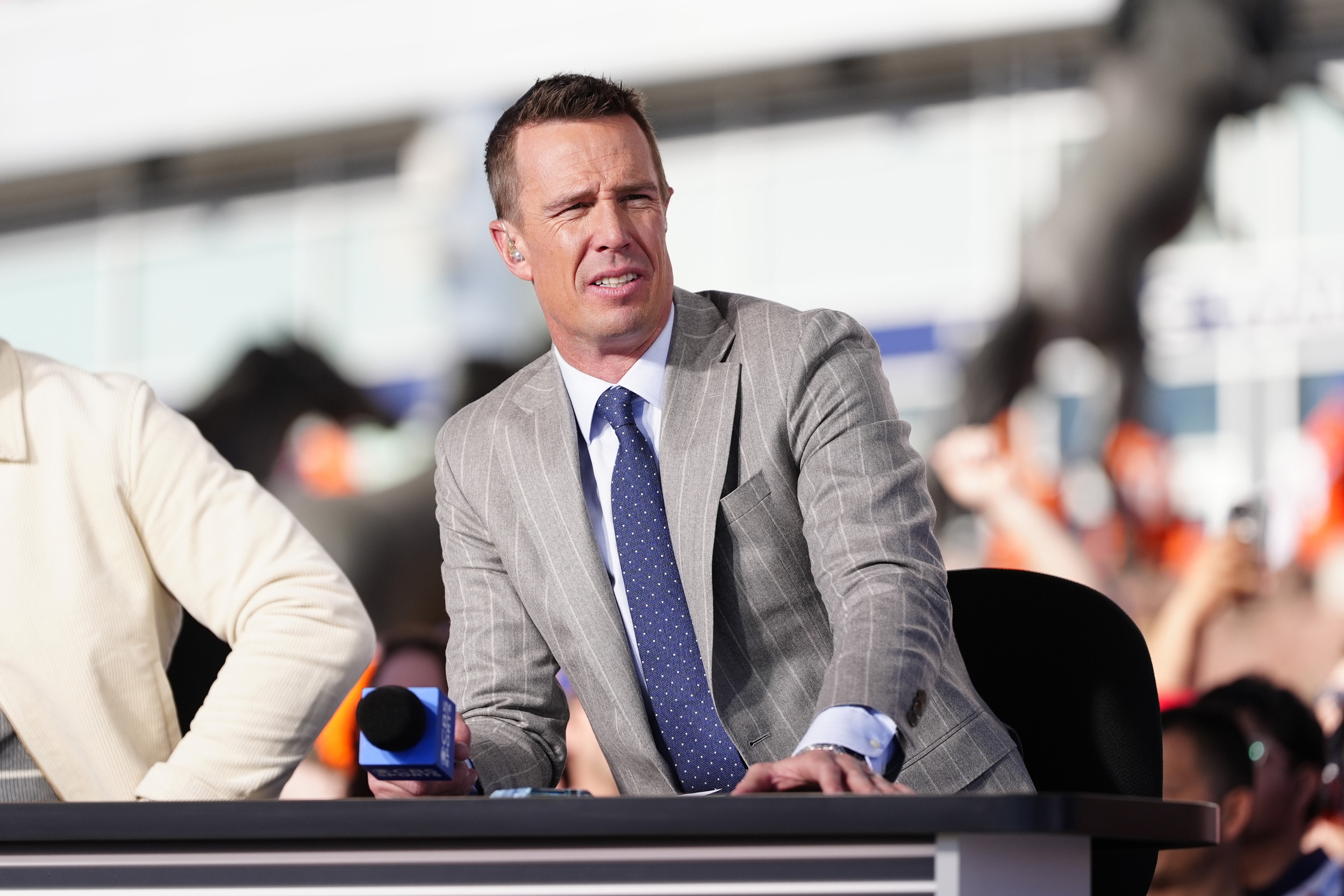
I met LeBron James once.
We were both 17 and in Las Vegas for an AAU tournament. He was just at the beginning of what would be an incredible and scandal-filled senior year. He wasn’t known nationally yet and unless you read SLAM Magazine religiously, you probably didn’t know who he was then either.
James didn’t play in that tournament. He had an injured wrist. While my team was there though, we saw him in the gym. One of my teammates wanted to take a picture with him. He asked James if he would, and of course, James politely obliged. I had the same opportunity to take a picture with the proclaimed Chosen One. I scoffed.
“Why would I want to take a picture with someone I don’t know who is the same age as me?” I said to myself and anyone who would listen.
That’s the thing with LeBron James. He can’t win.
Last night, James put together a brilliant game against the San Antonio Spurs in Game 2 of the NBA Finals. He finished with 17 points, 8 rebounds and 7 assists.
He was the main focal point of the Spurs defensive effort and the reason Mario Chalmers was able to score 19 points and Ray Allen and Mike Miller found themselves open for 3-point attempts. By the way, those three role players, went 8-12 from beyond the arc. That’s 24 points. The Heat’s biggest lead of the game was 27.
For his work James was interviewed on the floor after the game. One of the first things he said was that he knew he hadn’t had a good offensive game and he trusted his teammates to carry him and make shots on nights like this.
I’m sorry?
Nights like this? Nights like when the game’s best player dominates in every category. Nights like this when his play-making and decision-making lead to his team having 5 players in double figures and two more players (Chris Anderson and Miller) coming one point shy of double figures. Nights like this when he single-handedly (literally) made the play that could define these NBA Finals (which is no short order considering Tony Parker’s great moment in Game 1)? Nights like these when he played against these Spurs the same way he played on his first run to the Finals in 2007—making the right plays, at the right time, consequences be damned.
After a night like this, why would James talk about what he didn’t do and how he thought he struggled?
Because LeBron James can’t win. And he knows it.
That’s why after two of the best Finals performances, he’s had to answer questions about is he doing enough? Is he shooting enough? Is he demanding enough? Is he enough to beat the Spurs and maintain his place on the throne?
And these questions didn’t just come after the game. They came during the broadcast. Midway through the 3rd quarter before the Heat went on a massive run both Mike Breen and Jeff Van Gundy were mentioning how James wasn’t having a great offensive game or being very assertive. And when the broadcast team talks that way so do all the fans watching the game. And so does the ESPN studio show and then of course, so do the Monday morning talking heads.
LeBron James, for all his strengths, does have his weaknesses, though they are hard to find on the court. One of those weaknesses, is that he does want to be liked. He is decently self aware, especially when it comes to his play on the court and how its perceived.
In the 2007 Eastern Conference Finals while playing for the Cleveland Cavaliers against the Detroit Pistons, James passed up a shot to win the game, by making the right basketball play, and passing to a wide-open Donyell Marshall. Marshall missed the shot and Detroit went on to win the game.
After the game all the talk was about how James had to take that shot. That he was the best player and it was the biggest moment and that’s when it was his job to take the shot. James heard the criticism. It started the process that would change his game and ultimately change his career. The climax of that change came during The Decision and the backlash after it. Everyone came gunning for the King who left town to chase titles. Yet, what no one realizes is that James didn’t change after The Decision…he changed before it.
Before he ever considered leaving, he was asked to be a player he never wanted to be. A player who took all the shots, took all the responsibility and looked more like Kobe Bryant or Michael Jordan on offense than the player he truly was, which as of yet, has no comparison. James didn’t like being that guy. That’s not the way he plays basketball. Even during his days as a high school player and on the AAU circuit, James was known as play-maker and incredible passer. He loved making weak side blocks on unsuspecting drivers to the basket (what up Tiago) and enjoyed finishing alley-oops more than fast break solo dunks because of the teamwork involved.
James left Cleveland to be the player he always knew he was and to win. He realized he needed better teammates to do it. Pat Riley and the Miami Heat promised him that. So far, they’ve delivered. Yes, it took a season to figure it out and for James to figure out how to be his true self again. But in these NBA Finals, we are all witnesses.
LeBron James knows he can’t win. There will always be those who say he needs to do more, score more, to be someone he isn’t.
“I do what’s best for the team. What’s best for the team, it doesn’t always result in a win.” James said after losing Game 1.
The expectation, based on his past, would be that LeBron James would have heard the criticism after that loss. And despite his incredible 18-18-10 triple-double in Game 1, would’ve come out in Game 2 and tried to take the game over.
But LeBron James can’t win. And he knows it. He is going to play the game his way, the right way, and let winning take care of itself. Let everyone judge him how they will.
Yes, even a 17 year-old kid who can’t possibly imagine he’s standing next to a kid who could be the game’s greatest player… the kid who would be King.
Come to think of it, it’d be kind of cool to have that photo now.
Scott Christopher is a guest writer for Next Impulse Sports. Follow him @ScottC247.







About Scott Christopher
Recent Posts
A.J. Brown not guaranteed to be stay with Eagles
"I can't guarantee how anything is going to play out."
Kevin Durants plans on suiting up for US again
"Hell yeah, I want to play."
Eileen Gu snags 6th Olympic medal
"She is 'Wonder Woman,'"
Matt Ryan breaks silence on Falcons quarterback
"He’s in a good place right now."
Jayden Daniels loves Philly fans
“I love Eagles fans."
Ben Roethlisberger responds to attack on character
"I like to think as we mature and as we grow in our faith."